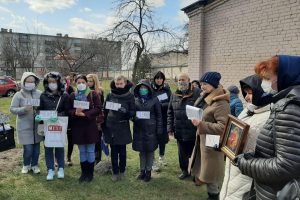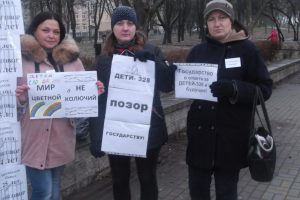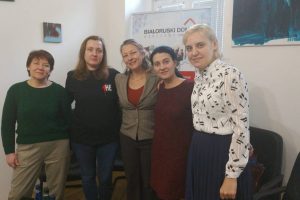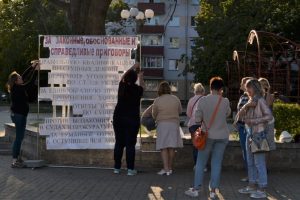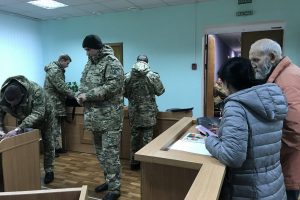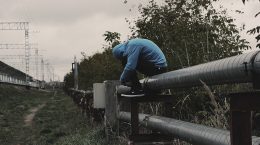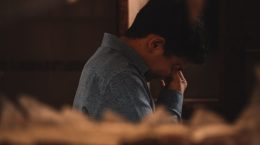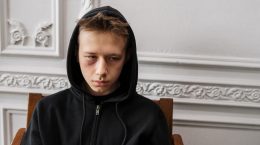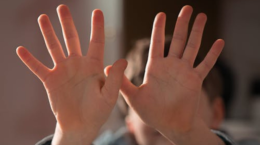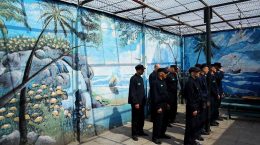On September 23, 2018, “Our House” launched a campaign dedicated to a complex and serious problem that provokes a public controversy, a campaign to release the “children-328” from prison.
“Children-328” are minors at the time of detention of convicted of minor non-violent drug-related offences (Article 328 of the Criminal Code of the Republic of Belarus). They all face violations of their rights, and our goal was to nip this perverse practice and force the authorities to cease improving children for long periods.
As it is usually accepted, people’s big problems in Belarus often start with a certain presidential decree. That’s what happened with Presidential Decree No. 18, according to which children were removed from their families for far-fetched reasons. In fact, the same thing happened with the Anti-Drug Decree No. 6 “On urgent measures to combat drug trafficking.”
The decree came into force in 2014, according to it, the minimum age of criminal prosecution under articles on narcotic drugs was reduced from 16 to 14 years. Since the introduction of the anti-drug decree, thousands of teenagers and young people were sentenced to long terms of imprisonment (8-15 years).
Understanding the situation and studying the cases of juvenile convicts, we noted how similar they are. The story of almost every teenager who got caught “for drugs” can be described as follows: I was looking for money on the Internet (or I saw an advertisement on the Internet about working with well-paid wage), I contacted the employer, I received assurances that the job was fully legal (the distribution of not prohibited smoking mixtures, etc.), became a “courier”, was detained and sentenced to a term of half of lived life.
As a rule, their employers do not appear in the dock, they appear in the case file as “unidentified persons”. The child was used for criminal purposes, as an expendable resource, one was imprisoned – there is always a room for another one because the resources that are gaining young “couriers” continue to operate.
Inadequately severe punishment does not take into account the psychological characteristics of adolescents – they do not have enough life experience to assess all the risks of such proposals on the Internet. This is an exciting adventure and the promise of easy big money. The ending of such an “adventure” is always cruel – detentions occur with numerous violations, physical violence and torture, children experience tremendous stress while in a detention center, and after the conviction, they end up in correctional facilities where they work for a penny for years and lose their health.
The “Children-328” campaign has already borne fruits:
– In 2019, there were changes in the anti-drug legislation, the lower threshold of punishment was reduced by two years;
– In the same 2019 year, some categories of convicts-328 fell under an amnesty for the first time.
However, not all “children – 328” were affected by these changes. In particular, children and young people convicted under Part 4 of Article 328 of the Criminal Code of the Republic of Belarus, as well as convicted-328, having three or more penalties in prison (the so-called “malignant”), cannot be subject to amnesty and lowering the threshold punishment.
All this gives us an incentive to move on to our goal – fulfilling all 16 requirements that we are addressing to the Belarusian authorities.
These requirements were formulated by a group of mothers of convicted juveniles – the activists of the Children-328 campaign. The campaign will not end until they are fully implemented.
General requirements:
- The total amnesty for all juveniles-328 at the time of detention and the release of all juvenile prisoners.
- Review of all cases and termination of all criminal cases, including legal proceedings, for minors at the time of detention, the files of which contain the wording “unidentified” (organized groups, persons, etc.).
- Withdrawal of lawsuits for compensation of money for conducting expert examinations in cases of minors-328 at the time of detention and returning money to their parents which was already spent on conducting expert examinations.
- Being in pre-trial detention centres before the juvenile-328 court at the time of detention will be considered as 1 day for 3 days in places of deprivation of liberty. For the rest (adults) – 1 day for 2 days.
- Criminal cases do not initiate against minors who come into the view of law enforcement agencies for the first time, as well as with minor offences under Article 328 of the Criminal Code of the Republic of Belarus, in which there is no fact of damage to the health of other citizens. Information about them should be transferred to specialized commissions for subsequent preventive work to prevent drug crimes.
Until the implementation of requirements 1-5, we put forward requirements for the conditions of detention and labour of prisoners:
- The lifting of the strengthening enforcement of the regime which is applied in the colonies, where are the prisoners convicted under Art. 328 of the Criminal Code of the Republic of Belarus, because of which juvenile convicts-328 are presented as worse offenders (they are deprived of visits, food parcels, and the possibility of parole).
- Define and make public a closed list of criteria according to which juvenile convicts-328 may be penalized at the time of detention, with the right to appeal them to higher instances or the court. The wording “and others …” (violations), which allows imposing penalties for any minor misconduct, should not be included on this list.
- Introduce a ban on the placement of juvenile prisoners-328 in isolation rooms as a punitive measure.
- Organize work in the colonies only after the conclusion of an official labour contract with the deduction of all taxes to the pension fund. Payment for labour should be done under the specified tariff from the Ministry of Labor and should be at least 50% of the average wage in Belarus.
- Introduce a ban on deprivation of visits and food parcels for minors-328 at the time of detention.
- Allow transmitting unlimited food and clothing transfers from relatives to juvenile prisoners-328 at the time of detention with the right to transfer them monthly.
- Introduce a ban on the seizure of personal money of juvenile-328 at the time of detention for the “needs of the colonies.” And also, organize the full provision of juvenile convicts-328 at the time of detention at the expense of the state budget (to date, children-328 are essentially kept by relatives)
- Create public commissions from relatives of minors-328 at the time of detention to monitor the conditions of places of detention with the right to visit the places at any time.
- Requirements for the organization of health care and education for prisoners:
- Provide compulsory life and health medical insurance of all juvenile prisoners-328 at the time of detention.
- Guarantee the unconditional right for relatives to hire independent experts once a year to examine the health of juvenile convicts-328 at the time of detention.
- Bring to justice officials who did not give school certificates of education to detained juveniles before the trial. Urgently arrange examinations for such children and their schooling.



